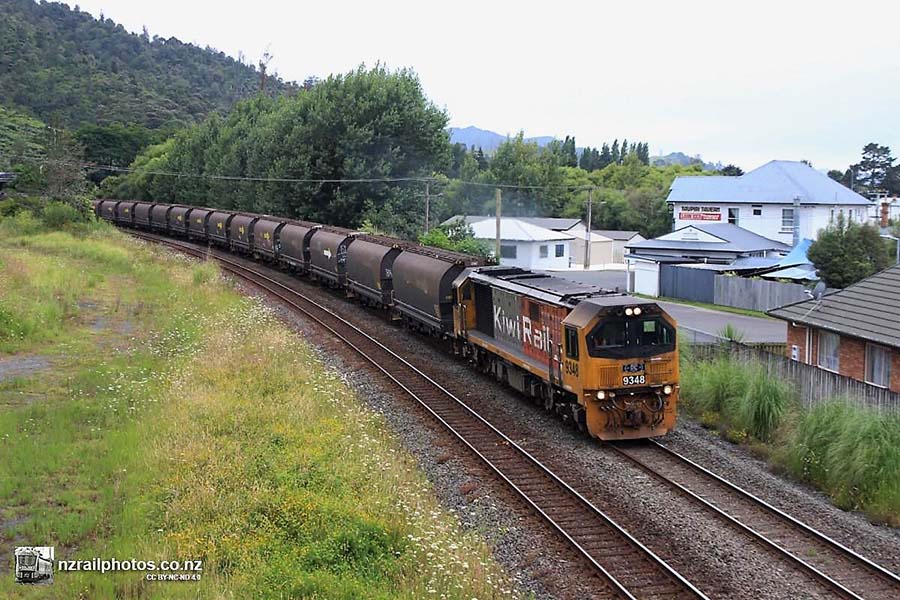Ia Ara Aotearoa Transporting New Zealand News


Road freight should not subsidise rail
For those versed in Greek mythology, the Government's infatuation with moving freight from road to rail will sound very familiar.
Like the sailors who find themselves lured to their deaths by the captivating music and enchanting voices of the sirens from Homer's Odyssey, Government ministers have been lured towards the economic rocks by rail nostalgists who have little understanding of the importance of efficient freight movements to New Zealand's success.
The Road Transport Forum is extremely concerned that the Government is progressing a law change that will allocate money to rail…money that's been paid by those of us who use roads.
We recently appeared before Parliament's Transport and Infrastructure Select Committee to directly express the industry's problem with this legislation and the perverse impact it will have on the economy.
As we explained to the committee, there is no doubt that NZ requires a well-maintained, first-world rail network and must replace old and tired assets. We are also supportive of recent announcements regarding passenger rail and the infrastructure to improve that.
...For those versed in Greek mythology, the Government's infatuation with moving freight from road to rail will sound very familiar.
Like the sailors who find themselves lured to their deaths by the captivating music and enchanting voices of the sirens from Homer's Odyssey, Government ministers have been lured towards the economic rocks by rail nostalgists who have little understanding of the importance of efficient freight movements to New Zealand's success.
The Road Transport Forum is extremely concerned that the Government is progressing a law change that will allocate money to rail…money that's been paid by those of us who use roads.
We recently appeared before Parliament's Transport and Infrastructure Select Committee to directly express the industry's problem with this legislation and the perverse impact it will have on the economy.
As we explained to the committee, there is no doubt that NZ requires a well-maintained, first-world rail network and must replace old and tired assets. We are also supportive of recent announcements regarding passenger rail and the infrastructure to improve that.
However, if funding to rail is justified by a promise that you will be shifting freight from road to rail, then that, at best, is extremely misleading and, at worst, is an outright lie.
The National Land Transport Fund (NLTF) is funded by road users for the purpose of funding the maintenance and upgrading of our roads. Yes, it has been used to help pay for public transport projects, including commuter rail, but that has a direct benefit to road users through the alleviation of traffic congestion.
Unfortunately, this legislation further politicises future road funding by letting it be accessed by rail.
Rail, as we know, is a bottomless pit when it comes to its need for extra money. Rail advocates use the argument that rail has never been able to stand on its own two feet because it has always suffered from under-investment. The reality is that rail outside of the major centres will never be able to pay its own way.
When it comes to freight specifically, rail isn't even an option for the vast majority of the task. This is because the nature of the goods being moved around NZ won't ever be suitable for rail – they are generally time sensitive, have many different points of origin and customers demand flexibility in delivery schedules.
The average distance across all modes – road, rail and coastal shipping – that a load travels in NZ is only just over 100 kilometres…and around 80% of NZ freight is delivered within the region of its origin.
Rail at any level is almost always dependent on a truck at each end – the only exception to this being coal. Every time you force a shift in mode you add time and cost in trans-shipping and double-handling and reduce efficiency.
That adds costs to the lives of NZers, not to mention exporters who must contend with stiff international competition.
Rail is only competitive with road over a long distance and with bulk, non time-dependent commodities such as coal.
Rail has also proven to be pretty unreliable in NZ. It is extremely common for parts of the network to face 'outages.' Of course, rail enthusiasts again blame under-investment, but the funny thing is, unless the outage affects a commuter service in one of our major cities, people don't really realise it.
The reason for that is because the rail network is simply not that significant to the movement of freight.
It is very revealing that internationally the modal proportions amongst similar economies to ours are much the same. Even where countries like Germany, the United Kingdom and France boast much more impressive rail networks, the proportion of road freight versus rail freight is similar, if not slightly greater than what we have.
Trucks, which carry our economy on their backs, pay for a good chunk of our roads. In fact, we know from a recent study that many of the vehicle types used in road freight actually pay more than their fair share in RUCs.
The roads are engineered to a standard that handles heavy trucks, and therefore all road users benefit from that standard. It is absurd then that we should also be expected to pay to maintain and upgrade rail.
The legislation proposes a sort of track-user fee for KiwiRail, which is something RTF has long advocated for. However, the bill provides no details on it and I can see the situation quickly developing where KiwiRail pays a nominal fee into the NLTF….and yet takes billions from road users for network upgrades, in order to try to compete with the very industry that is subsidising them.
That is not equitable and it is definitely not fair to the dozens of hardworking road transport companies operating at extremely low margins in an ultra-competitive industry. Road freight is effectively being asked to subsidise our less-efficient opposition.
We constantly hear rhetoric from the Government about removing trucks off the road – without any clear articulation or case as to how they are going to achieve that….other than by taking money paid in RUC by the road freight industry and transferring it to rail. I know they believe this bill will help achieve this modal shift, but I just cannot see it changing much, except impacting the bottom lines of freight companies and imposing a further drag on the economy.
Finally, I just want to publicly acknowledge the passing of Evan Dix of Marton Carrying Company late last year. Evan, who was in his 101st year, was a life member of RTF and a great contributor to the road transport industry. He was also known for his community service and served in the Second NZ Expeditionary Force in World War 2.




 + EQUIPMENT GUIDE - FREE
+ EQUIPMENT GUIDE - FREE
